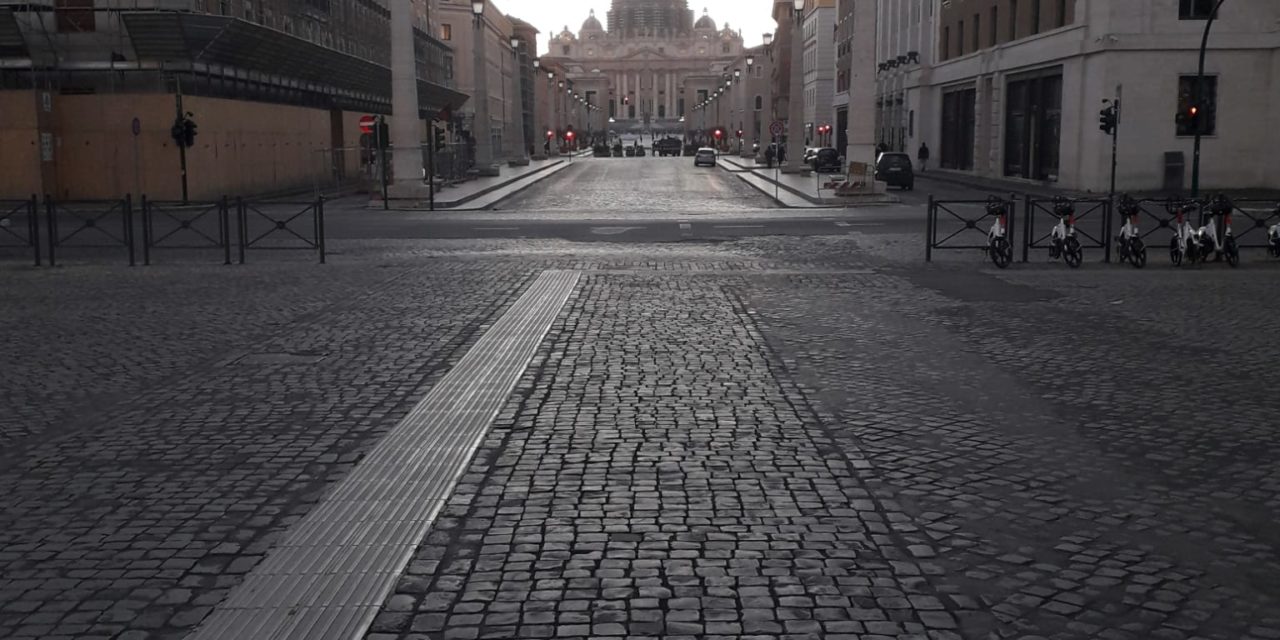By Estefania Magdalena | Staff Writer
Antonio Russo, a 23-year-old Italian nursing student from Naples, lived a distressing day last Monday, March 9, when he returned home and the Italian police stopped him to ask him for explanations of why he was walking on the street.
“I explained to the authorities that I was returning to my house, and the police made me complete a form to establish that I was outside,” he said recently.
Thousands of people in the world are dealing — to a greater or lesser extent — with this situation, and in Europe, they live day by day in a much different way than what we’re facing here in Hawai’i.
Italy, one of the most affected areas to date, has 35,713 confirmed cases, as of the morning of March 18, according to the Johns Hopkins Coronavirus Research Center. Many in the Italian population were split when information about the virus began to be known after the first confirmed case on Feb. 21. On the one hand, there were those who believed it to be something minor; others were immediately frightened.
When the outbreaks started in Northern Italy, people began to become more aware, wash their hands, and cut down on social gatherings. On March 9, the government of Italy under the Primer Minister Giuseppe Conte ordered a national quarantine that is still going on to this day.
“We cannot go outside at any time [except for solo walks, trips to the store or other essential activities],” Russo said. “It is a very stressful situation. In order not to feel so isolated, people began to go out on the balconies to sing and play the tambourines. It is our way of feeling less alone as a community.”
On Sunday, Honolulu Mayor Kirk Caldwell issued an emergency order that requires everyone to stay at home, except for limited permitted activities, until April 30.
The measure will take effect on Monday at 4:30 p.m., and people will only be allowed to leave home for health emergencies, buy food, or jobs that are essential for society. Outdoor activities allowed by law may be carried out. It is also very important to adhere to social distancing habits (staying at least 6 feet apart) and avoid meeting in groups of people for any type of social recreational activity that is not essential.
As O‘ahu starts to prepare for this lockdown, Italy and the rest of Europe have been experiencing this for more than a week. Maria Diaz Tarasiuk, a 25-year-old Spanish makeup artist, has been in a mandatory quarantine since March 14 when Prime Minister Pedro Sánchez declared a national emergency.
Although she lives in the city of Mataró, a province of Barcelona, the cases in Madrid, the capital of Spain, have multiplied with speed and the country now has nearly 14,000 confirmed cases, according to Johns Hopkins.
People are changing the modality of work to home office, where they are supposed to do their work obligations from home, and all educational institutes have canceled classes.
“Some people don’t understand that quarantining doesn’t mean being on vacation,” she said. “People have to stay home unless they need to buy food or medicine.”
Catalina Esposito, an Italian educational psychologist currently living in Bristol, UK, said that the situation in England is being experienced differently.
Classes have not been canceled so far, but some companies have chosen to allow their employees to work from home. In schools, one video is shown per day teaching students to stay calm and reporting that the key is to wash their hands and avoid touching their face.
Esposito said that what she could notice is the total shortage of all supermarkets.
“There is no toilet paper in the supermarkets,” she said. “People are buying nine packages of noodles as if an apocalypse is coming.”
Mariano Rodriguez, a 25-year-old Argentine currently living in Copenhagen, Denmark, said that measures to prevent the virus in the country have been drastic.
Borders have been closed, as well as public spaces. Classes have been canceled and people cannot go to work.
“For a month the border will be closed,” Rodriguez said. “No one can enter the country if it is not for a really important reason, and only if they are Danish citizens.”
Supermarkets in Denmark are also out of stock and there are no people circulating on the streets, nor on public transportation.
Many of the people who had the plan to travel to Denmark with the “Work Away” visa have suffered because all the programs have been canceled. Having closed all hotels, restaurants, and public places, there are no job offers.
“I had to take the subway at 3 p.m. in the afternoon, and we were only two people,” he said, “It made me paranoid. I am also distressed to know that I cannot leave the country until this is over.”






